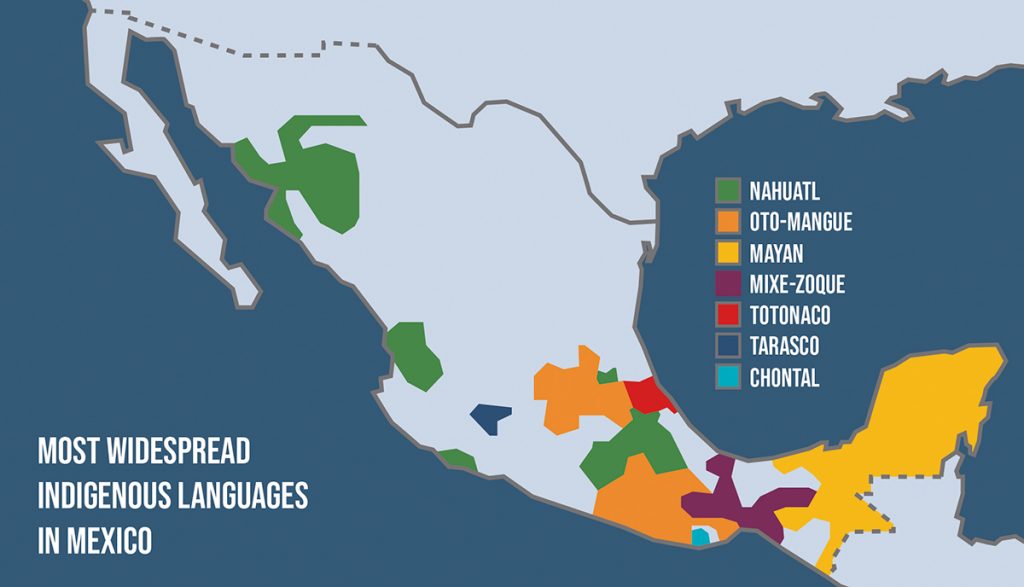The Spanish language immediately jumps to mind when one thinks of the language situation in Mexico.
The truth is, however, a lot more complex and interesting, and even Spanish is not the same as might be naively thought.
Apart from Spanish, Mexico recognizes 62 Amerindian languages as national languages. Although the Spanish occupation had the long lasting effect of making Spanish the main language of Mexico, the government still retains and encourages the usage and significance of indigenous languages.
As a matter of fact, Mexico is one of the countries that have the most living languages. Obviously, the Mexican government is making a remarkable effort in preserving the languages and identity of their related cultures.
The government approved a linguistic law, recognizes the Spanish and Mexico indigenous languages to be the national languages. In practice, all indigenous Mexican speakers can speak Spanish as well.

Mexico is one of the countries that have the most living languages, recognizing 62 Amerindian languages as national.
Mexican Spanish is different from the Spanish language spoken in the rest of the world. Mexican Spanish is blended with indigenous vocabulary, mostly from Nahuatl. Nahuatl is one of the dominant indigenous languages in Mexico, which was extensively spoken throughout the Aztec empire.
Mexico is a diverse multilingual community, and it is important to recognize this linguistic culture, which is crucial to the traditional identity of the natives. Hence, when visiting or doing business in Mexico it is necessary to communicate with the locals in Spanish or in one of the indigenous languages that is widely spoken by the target audience.
Although the country is dominated by the Mexican Spanish language, communication with the target audience whose native tongue is one of the indigenous languages of Mexico is essential as well. And if you require a language translation into any of the Mexican languages, is better to seek help from a native speaker of the language.
Recognizing the significance and heritage of indigenous languages is essential in the preservation of their existence and their crucial role in Mexican society. In the long run, preserving and keeping the linguistic status of indigenous languages is crucial in order to maintain its familiarity and usage of the speakers.

Just like any other country, Mexico has special traditions when it comes to their linguistic system. Although Mexican Spanish is considered to be the major language, Mexican society is open to recognize and allow the locals to speak, write, and communicate with other people using their own native tongues, whether it is indigenous languages or Spanish.
Mexico has a long linguistic history, and preserving the government minority languages is just one of their projects in order to save their heritage. Thus, clients who want to communicate with Mexicans should make sure in which language they are comfortable to discuss a given subject.
Every language has its own culture and history; and a country like Mexico is trying to keep and protect their rich heritage in the face of a strong influence of foreign languages, and so, instituting Mexican Spanish and other indigenous languages as their national languages makes Mexico stand out among other cultures.
Article written by:
Charlene Lacandazo
Blogger
Rosetta Translation Limited






